The circular economy does not just concern companies or public authorities! In fact, many actions can be taken by citizens themselves. Behind every citizen lies a consumer, who, at his or her own level, can become a key player in the transition towards a more circular, environmentally-friendly economy.
How to consume circularly?
Circular consumption means moving towards alternative, more responsible modes of consumption, which not only enable us to consume better and spend less, but also to integrate collective approaches. While there is no such thing as a guide to circular consumption, here are a few examples of thoughts and practices to integrate in your daily life:
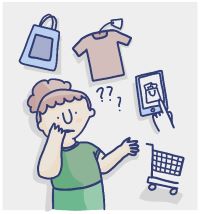
- Ask yourself what your real consumption needs are: How useful will this new object be? Do I really need it? These reflections enable us to reduce our consumption and/or to move towards other alternative solutions described below (borrowing, bartering, buying second-hand, etc.).
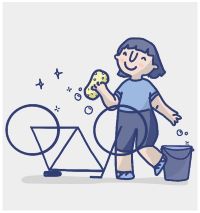
- Ensure the proper handling and responsible use of your goods, in order to maximise their lifespans.
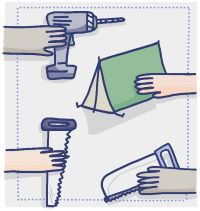
- Favour collaborative consumption practices, such as sharing or exchanging goods (cars, housing, parking, drills, etc.), services (carpooling, DIY, etc.) or knowledge (computer courses, learning communities, etc.) between individuals. These practices can be carried out with or without monetary exchange, and avoid the need to purchase individual consumer goods.
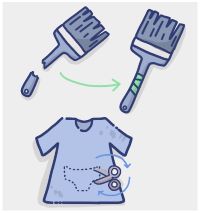
- Promote re-use, through repairing, re-using, upcycling (i.e. prolonging the life of certain used objects or their components by giving them a new function), buying second-hand goods or donating goods that are no longer being used.
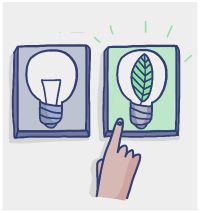
- Favour eco-designed products, meaning products that have been developed with the aim of minimising their negative impact on the environment as much as possible. They may be made from recycled, more environmentally-friendly materials, for example, or have been designed/engineered to last longer. A product that has been developed to facilitate repair, re-manufacturing, re-use and recycling is an eco-designed product. Eco-design also integrates zero-waste thinking.
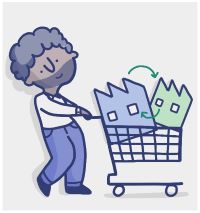
- Buying from companies that practise circularity themselves, and thus support more environmentally-friendly business practices, which are often local and cannot be relocated.
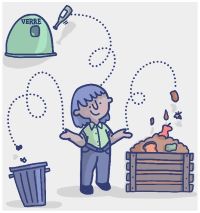
In addition to your own consumption, you can also ensure the proper management of your own waste. Firstly, by respecting sorting rules, as many materials can be recycled and then used again. And secondly, by creating compost at home to make use of organic matter.
So why circular consumption?
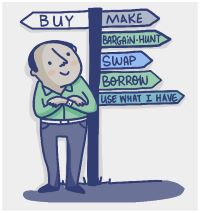
By integrating these circular economy principles into your consumption practices, you can contribute to this transition towards a more responsible economy. You can thus influence production methods by consuming better and differently.
But that's not all! By consuming circularly, you can also save and even earn money. Repairing, sharing and buying second-hand have a direct impact on your wallet. You can also earn a small income by renting out certain tools and goods. Last but not least, products from the circular economy are designed to have a longer lifespan, and therefore need to be replaced less often.
Pour aller plus loin...
- Vous ne savez pas par où commencer ? Découvrez quelques propositions pour réduire vos déchets chez vous
- Vous avez un objet à faire réparer ? Trouvez le Repair Café le plus proche de chez vous
- Dans quelle poubelle va votre déchet ? Retrouvez toutes les règles de tri

